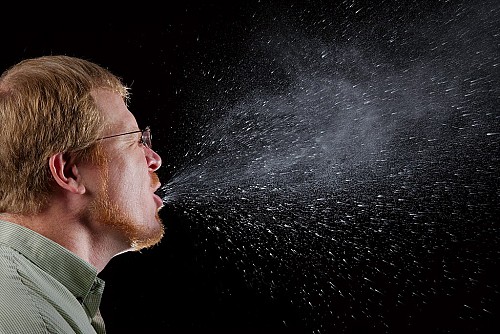The Common Cold: What You Need to Know
Drifting snowflakes, hot chocolate by the fireside, holiday season … winter can be tons of fun. Unless, of course, you catch a cold. Then it’s sniffling, sneezing, sore throat, and achy muscle time for you. But does December through March always have to be cold and flu season? Not necessarily. Learn more about causes and DIY preventatives for the common cold – and prepare for a happy, healthy winter.
What causes colds?
The most common cause of the common cold is something called a rhinovirus. Ultrafine in size, rhinovirus particles spread easily, through both the air and physical contact with infected people (and objects they’ve touched). If you’re unlucky enough to be exposed, cold symptoms will appear within 24 hours. Pre-existing conditions such as asthma or a compromised immune system tend to make symptoms more severe.
Is there a cure for the common cold?
Science hasn’t found one (yet). At present, we have no cure for the common cold and no vaccine against it. That makes cold prevention all the more important.
Does being cold mean you’ll catch a cold?
It’s complicated. Contrary to popular belief, exposure to cold air can’t cause a cold; the rhinovirus is what does that. However, being too cold for too long does tend to lower resistance, making you more vulnerable to viruses. So, yes dear, put on that fuzzy hat before you go out in freezing weather.
What are other ways to build up the body’s resistance to colds?
Increase your resistance by following the basic principles of good health:
- Get enough sleep.
- Eat a nutritious, balanced diet.
- Drink plenty of fluids.
- Do some form of aerobic exercise.
- Combat stress with techniques like yoga or meditation.
Can you do anything to prevent a cold?
Yes indeed. Take these simple actions:
- Wash your hands – often and well. Lather up with soap and water (the temperature is unimportant), then rub hands together for at least 20 seconds – the time it takes you to belt out 2 choruses of “Happy Birthday.” Be sure to get in between your fingers and under your nails. Always wash hands before touching your eyes, mouth, and nose to avoid spreading any germs you may have picked up.
- Carefully clean household objects which are touched frequently, such as door handles, toilet flushers and seats, and television remotes. Regular disinfection will reduce the transfer of germs from person to person via these surfaces. Don’t share towels or washcloths, and launder them well in hot water.
- Stay away from sick people. If a loved one comes down with a cold, you may be the only available nurse (in which case you might want to wear a facemask), but in public, keep a safe distance away from any coughers and sneezers. If you yourself are under the weather, don’t be a “hero.” Stay home -- from work, school, shopping, whatever -- until your cold symptoms are better.
- Improve air quality in your home. In winter, we're inside more, closed up in well-sealed, insulated houses, with the furnace running non-stop. This may sound cozy but it’s actually the perfect setup for catching a cold. To fight back, Ted Myatt of the University of Rhode Island recommends keeping indoor relative humidity at 40-60 percent. In addition, install an air purifier with HEPA filter to reduce cold viruses in the air that you and your family breathe. Change your HVAC filter monthly and ensure ductwork is clean and mold-free.
How about home remedies for cold prevention?
In moderation, most home remedies for cold prevention can’t hurt. A few that might actually help include:
- quit smoking.
- eat more fruits and vegetables, particularly colorful varieties like bell peppers and spinach.
- take hot showers to clear out your nasal passages.
- supplement your diet with zinc and Vitamin D at the first sign of cold symptoms.
What’s a vampire sneeze?
A vampire sneeze is something you do to avoid giving a cold to other people. Rather than spreading viruses by merrily and openly sneezing away, hide your nose in a tissue, your sleeve, or the crook of your elbow when you feel that urge coming on. In this case, caring means not sharing.
Laura Firszt writes for networx.com.
Looking for a Pro? Call us (866) 441-6648

Average Costs
Related Experiences

Water Heater And Air Handler Replacement For Our Condo Downsize

In 123-Degree Heat, Air Conditioning Replacement Was A Must




